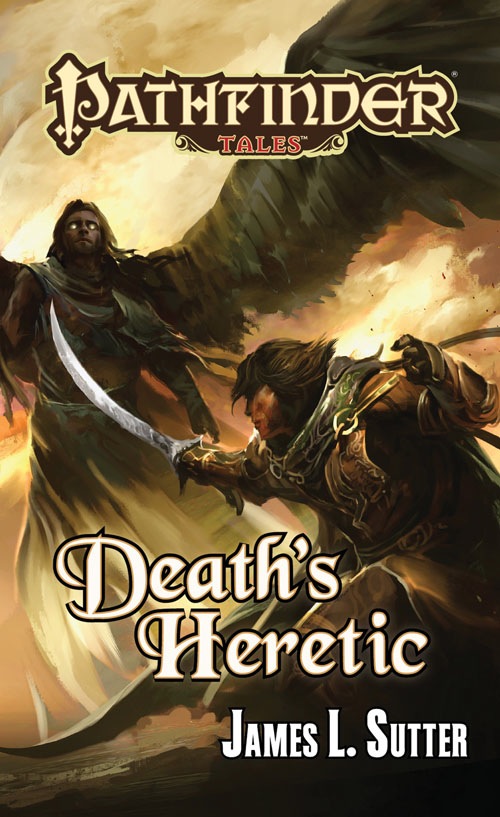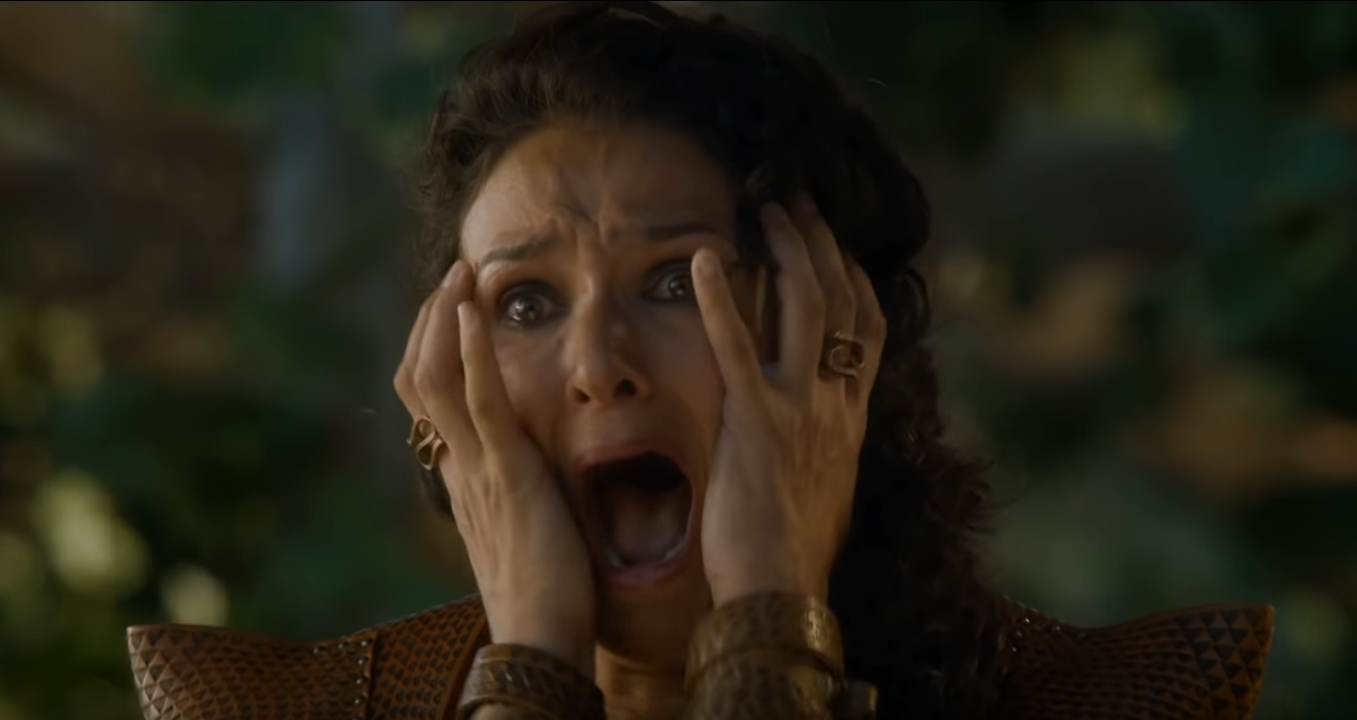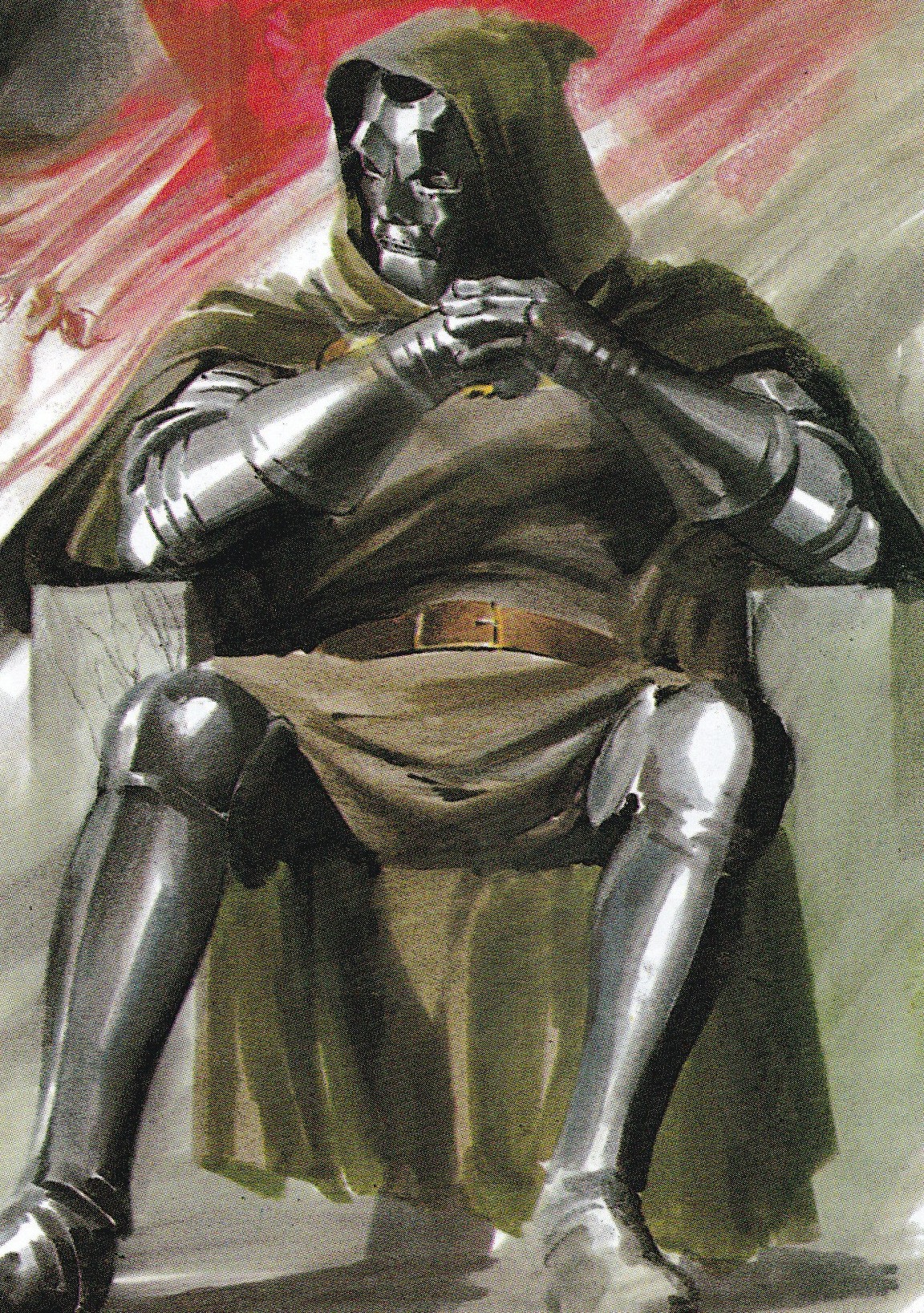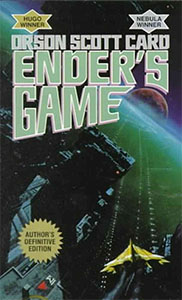
Her name was composed of seven syllables which blended together in a symphonic burst of seeming melody when uttered by even the most banal of tongues. It was a perfect name for a perfect person. She was in a room which, like herself, was perfect. A perfect ceiling, perfect doors, perfect furnishings, all enclosed within perfect walls.
She pushed herself along those perfect walls, molded atom by atom in a perfect shape conceived by a perfect mind. And as she went she felt those perfect walls tremble beneath her perfect fingers and for the first time within her breast she felt the groping pangs of what beings long before her time would know as fear. In this fear she went, finding her way in a world which slowly went mad about her.
She came to a stair of gold and she went down it, curving down and down into the depths below. She followed some grown instinct which told her that to delve deep below the surface was to find safety. The further down she went, the safer she would be. But today those instincts were betrayed as the rumblings grew and the halls through which she passed quaked and shuddered. And the fear grew within her.
This perfect place was falling from her. Though the walls were yet around her, seemingly unperturbed, she could feel the betrayal rumbling through her feet and into her legs; passing through attentive nerves which strained for any sign of the source of the insanity which plagued her world.
Through a door which opened even as she thought of passing through it, through another hall and another door, and into a wide place where other people stood or sat or ran. Her legs began to carry her faster. There was no sense, not even instinct, in her now – only the need for movement, the vain hope that there was someplace to which she could retreat and leave this place behind her. But the halls were endless. The corridors and passages and fretted rooms soared past her, one leading to the next with perfect grace and endless options.
The fear was still growing within her and now she felt the floor surge beneath her and she tumbled. This perfect woman, who had never known pain before, stumbled and fell and agonies coursed through her. Baffled and confused by this new, sharp sensation which seemed to both catch at her and rip through her at once, she looked down with wide, naïve eyes at the floor. Never had its rigid surface failed to yield before her, but now it seemed a shine had left it. It was cold and hard, and she knew it would never accept her in a warm embrace again.
Searing with betrayal, she pushed hard against her new enemy and lifted herself back to her feet. Now her pace had quickened once more as she raced with destiny, fate nipping at her heels. Her legs became a blur of motion and, though it took a seeming eternity, eventually she began to feel the pains of strain in her sides and in her feet and legs. Tears streamed down her face, but she could not bring herself to stop. To do so would be to admit this strange new reality and imbue it with purpose and truth. So she ran and ran and ran. There was no seeming end to her flight from the inevitable, her daunting fight against that which she could not see and could not hope to comprehend.
She might have continued thus until her death, but that she came into a room which stopped her. Here, among the golden columns and the silver walls, a group had gathered. The shaking was growing in intensity once more, but curious to see why these others had accumulated she slowed her weary feet and stopped beside them. They were a solid wall of flesh, their backs to her, surrounding something unseen upon the floor. With the uncaring abrasion belonging to those who had never mingled in a crowd, she forced her way through them.
What she saw was an impossibility. It could not be. It should not be. And yet she could not deny that it was so. Unless she was mad. Her mind seized at that vain straw, but she pushed it back down through force of will. This was not madness which confronted her. It was a dire truth. She knew that, could sense that, though she could not begin to grasp the true enormity of what confronted her.
A black gash had formed across that floor, here in this corner among the gold and silver. A dark maw which had claimed the perfect contours of this perfect world, crushing unspoken assurances which had lasted generations beyond the memories of those who now stared down at its daunting presence.
Around her the woman could hear the muttering of those gathered, a seemingly grisly undertone to the monstrosity which gaped before her. She felt the world spin about her in a daze and she let herself trail into the warm feeling of denial which beckoned to her, but all too soon she was jolted back to the cold realities which surrounded her by the massive shocks which rattled the chamber in which she stood. The blind panic of her fear clutched at her and she fled.
But now there was nowhere to flee. Wherever she went the impossible was being made possible. Perfect, indestructible things were falling to pieces all about her. The unseen, unguessed at technology which ran her perfect world had begun to fail for reasons which her people, trapped by their own design in perfect chambers beneath a world which had proceeded apace without them, could not begin to suspect.
Now the rooms and hallways through which she had run tossed her like a rag from her feet and, try as she might, she could not find the strength or balance to rise again. Great cracks appeared in the walls about her. Reality had become a fantasy, fantasy a reality.
She heard the screams of others, and knew – in a distant, unclear way – that her own voice had joined them. A loud crack resonated and, looking up, she saw that the ceiling was giving way and crashing down toward her. Then there was a bright flash of light and she knew no more.
Plasma seared away at the world which had once belonged to her and others like her and soon that world was no more. Soon after that, the sun which had shone unseen over that world for untold millennia finished its throes of death and exploded in a scintillant array of light which could be seen from one end of the known cosmos to the other. Of the woman and her people, a people who had lived longer than collective memory itself, no trace was left. Their legacy was nothing. Their world was nothing. They were nothing. All that remained was a void of memory, and the empty stretches of the universe that beckoned, unheard and unanswered.



 This also caused me to ruminate on the difficulty movie and TV studios seem to have in adapting Doctor Doom. A common refrain is that you can’t just put the bad guy in a face-covering mask, which prompts a wide variety of efforts to work around that “problem”. This is also something I find baffling. (And I can see that Darth Vader agrees with me, because he’s scratching his helmet.)
This also caused me to ruminate on the difficulty movie and TV studios seem to have in adapting Doctor Doom. A common refrain is that you can’t just put the bad guy in a face-covering mask, which prompts a wide variety of efforts to work around that “problem”. This is also something I find baffling. (And I can see that Darth Vader agrees with me, because he’s scratching his helmet.)










